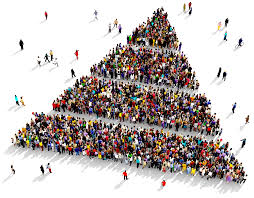It also discusses the centrality of monotheismin the Qur’anic doctrine system, and addresses the concepts of fairness andjustice, and their role in establishing social justice, by tracing the Qur’anicverses that dealt with the two concepts.The study concludes with the conclusion that Allah’s rule on earth cannot beupright or stable except with justice and fairness, both of which are obligatoryprerequisites for human perfection. Since the goal of the prophets in sociallife is to achieve human perfection, both individual and social, social justiceconstitutes one of the common basic keys that all heavenly religions sought toachieve and call for.The study also talks about indicators of the manifestation of social justice inIslamic society, such as the distribution of wealth, the status of women, the urgeto cooperate in righteousness, the enactment of a system of social solidarity, asystem for preserving the rights of social classes, and so on. It also explains thatthe divine promise of succession, and the establishment of security and socialjustice, all of this necessitates that faith be coupled with good deeds, becausethe manifestations of true doctrines must be coupled with practical behavior.




Comments